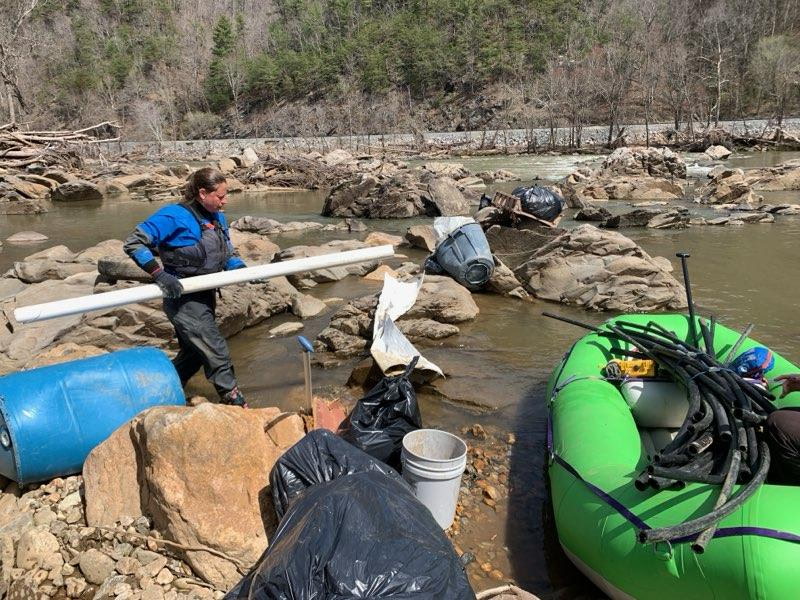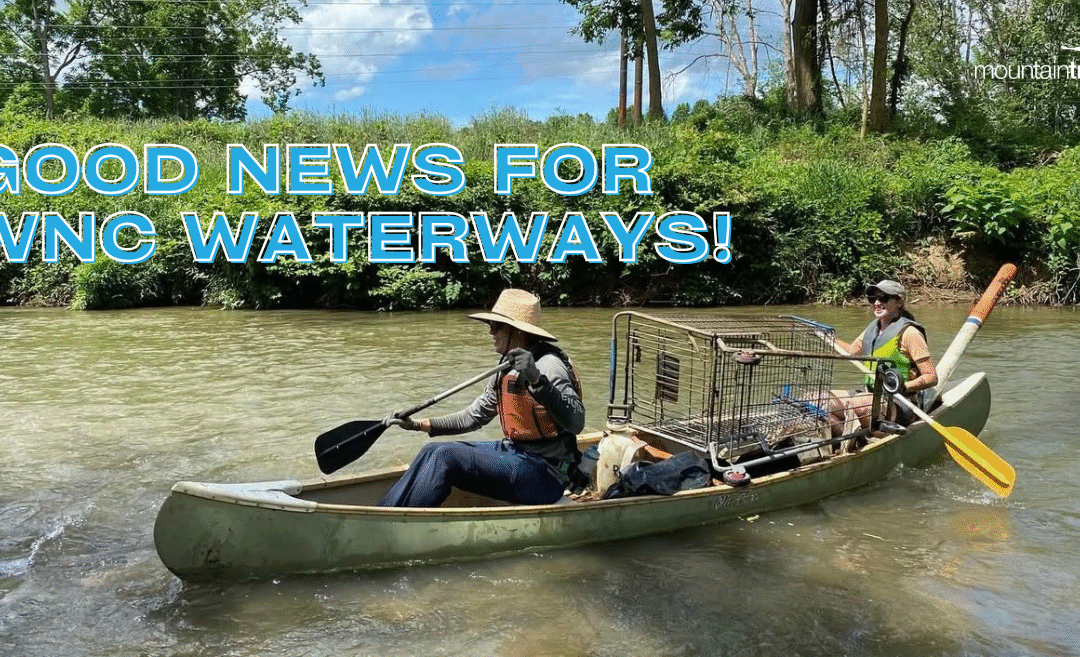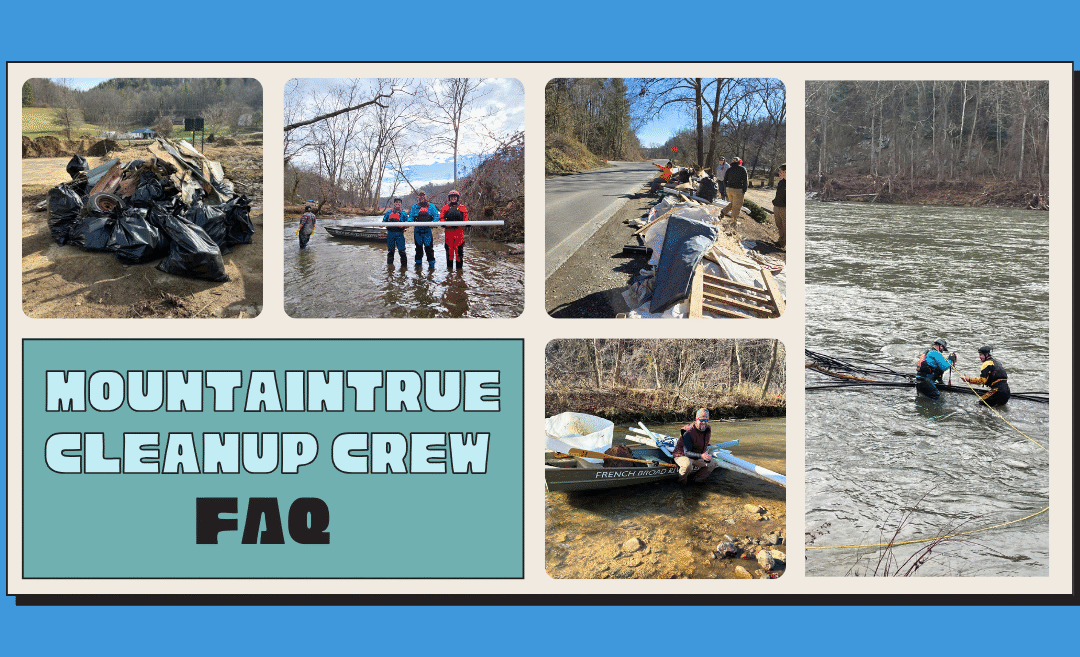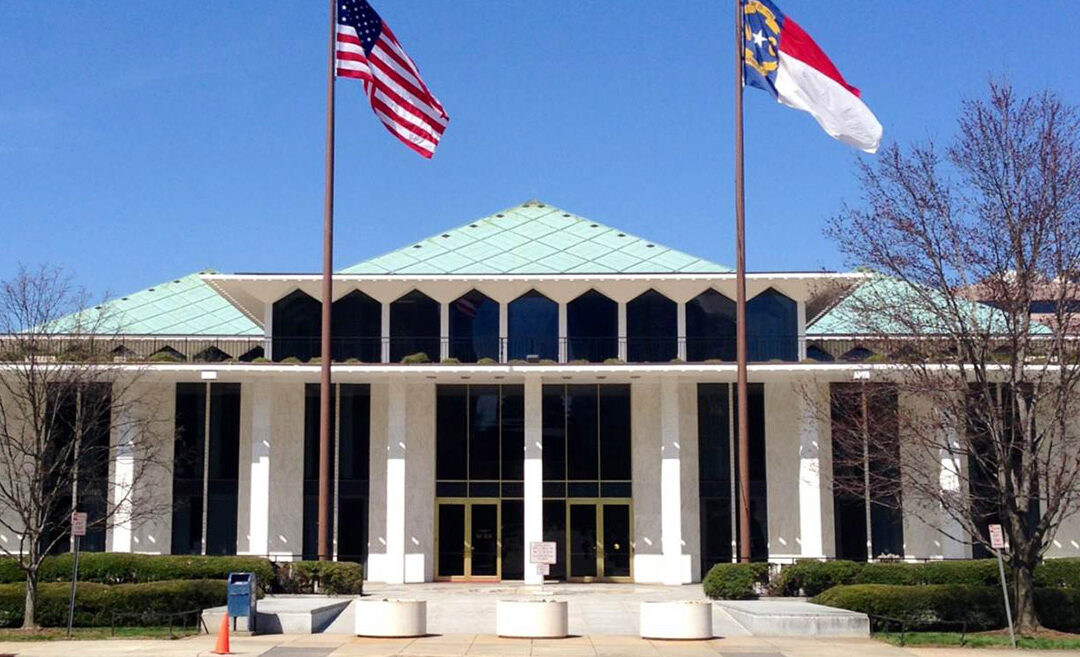
Debris cleanup update: How debris cleanup is progressing in Madison County
Debris cleanup update: How debris cleanup is progressing in Madison County
Many have seen heavy machinery in Madison County waterways and have expressed concerns about excessive woody debris removal and impacts to wildlife in the French Broad River. MountainTrue shares those concerns. We wanted to share an update for how this cleanup is going and how you can help ensure it goes smoothly.
MountainTrue, funded by a grant from the North Carolina Department of Environmental Quality, is focused on removing small, hand-pickable trash from waterways that machines can’t reach. Our work focuses on extracting man-made debris from areas inaccessible to machinery and restoring stream banks to help prevent erosion. MountainTrue will not be removing woody debris.
Meanwhile, with funding from FEMA, Madison County has hired Southern Debris Removal (SDR) to conduct larger debris removal using heavy machinery from bank to bank on the French Broad River, up to the traditional high water mark (Not the Helene flood mark.) SDR’s work is overseen by the Madison County Soil & Water Conservation District, the local government agency responsible for directing their efforts.
MountainTrue is working closely with Madison County Soil & Water to protect the river from unnecessary disturbance and ensure that dangerous debris is removed. To ensure that this complicated process is done as safely and effectively as possible, we could use your help.
How You Can Help
As residents and members of the local boating community, you have more eyes on this process than anyone. We’re calling on you to help guide this operation toward the best possible outcome by witnessing, documenting and reporting what you see.
SDR, like all contractors paid with FEMA funding, is required to follow FEMA Waterway Debris Removal Guidelines.
What actions would violate those guidelines?
- No timber matting under vehicles or machines entering/exiting waterways (these mats look like railroad ties embedded in the bank)
- Spilled petroleum or hazardous substances
- Excavation (digging) of soil or woody debris instead of pulling
- Removal of live trees leaning less than 30%
- Removal of root balls with less than 50% exposed
- Clumps of soil still attached to tree roots
- Removal of downed trees that were there before the storm
- Use of vehicles or machinery in wetlands
SDR is contracted to work countywide and may enter any navigable waterway. However, they are not allowed to remove pre-storm debris. On creeks that didn’t flood (like Big Pine Creek), there should be little to no debris removal. If you see them working on our little creeks, it’s worth documenting. MountainTrue is funded to carefully remove debris from smaller tributaries impacted by Helene.
If you see anything that violates these guidelines, including actions that create unnecessary environmental or safety hazards, you can submit this form: Madison County Debris Removal Concerns.
When submitting, include as much of the following as you can:
- Date, time, and location of the incident
- Close-up photos or videos showing the issue
- Zoomed-out photos or videos that give context to the location
- If safe to obtain, a photo of the machine’s ID sticker (usually located on the side) can also be helpful, but it’s not required
What happens next?
MountainTrue staff will review your submissions and pass them along to the Madison County Soil and Water Department if we feel that there is strong evidence that SDR is in violation of the guidelines.
To be clear, this is a complicated and necessary process. We are not seeking confrontation with machine operators, just accountability. Please keep in mind that debris removal employees are doing tough work in challenging conditions. How we engage matters and how we approach them may shape how they care for our community in return.
Let us know what you see. With your help, we can advocate for this cleanup to be done right and protect our rivers. For more information on Madison County Soil & Water Conservation District’s work with SDR, see its post here.
Additional information about the debris removal process in Madison County
SDR’s work will occur in two phases.
Phase 1: Waterway Debris Removal (WDR)
- During this stage, SDR may operate in the river channel (bank to bank) and remove debris up to the traditional high‑water line (not the Helene flood mark). Think of it like they are working on a highway right-of-way.
- No landowner permission is required to remove debris up to the traditional high‑water line from within the river.
- Machines may not operate above the high-water line unless the owner has signed a Right of Entry (ROE) during this phase.
If you see machines driving up the banks, tire tracks left above the traditional high water line, or debris that has been removed above the high water line during this stage, those are all causes for suspicion – please take a video and report it via the above form.
Phase 2: Personal Property Debris Removal (PPDR)
- Begins after the WDR phase is completed for a given river section.
- Some areas (like Sections 7 and 10) may enter this phase before others (like Sections 8 and 9)
- Property owners must sign up for this phase to have debris removed above the traditional high‑water line, otherwise SDR is not allowed to enter the property.
Can I still access the river?
- All public access points and river parks will remain open throughout SDR’s stay in Madison County.
- You are absolutely within your rights to be present at river parks, observe work, and take videos.
- SDR cannot ask you to leave public access points or parks.





